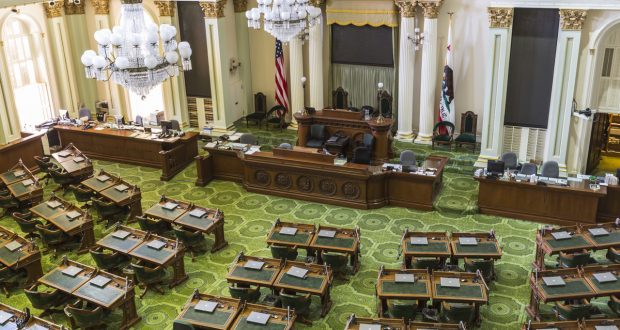In February, when the California Legislative Black Caucus (CLBC) announced its “Road to Repair 2025 Priority Bill Package,” which consists of 16 bills, Caucus Chair Akilah Weber Pierson (D-San Diego) said, “This bill package is about repairing centuries of economic damage and abuse that was inflicted on Black Californians.”
“This legislative package,” she added, “is a chance to transform the promise of equality into a lived reality, so that everyone can achieve the American dream.”
CLBC Vice Chair Assemblymember Isaac Bryan (D-Ladera Heights) echoed Weber Pierson’s commitment.
“This year, as we do every year, we will fight repair the harms of the past and create new ladders of opportunity for Black Californians.” said Bryan.
Two months later, all the bills except for one, ACA 6 — a constitutional amendment aiming to ban slavery in all forms in California – have been assigned to various legislative committees for consideration.
Over the next four weeks, California Black Media (CBM) will cover the 16 bills in the package to detail what each proposes and learn more from the authors. We will also track the bills and give you an update as they make their way through the legislative process.
Here are the first four:
Assembly Bill (AB) 7
AB 7, introduced by Bryan, would allow admission priority to the descendants of slaves at the University of California and California State University. The two institutions are among the largest public university systems in the nation.
“For decades universities gave preferential admission treatment to donors, and their family members, while others tied to legacies of harm were ignored and at times outright excluded,” said Bryan. “We have a moral responsibility to do all we can to right those wrongs.”
This bill comes in the wake of actions from the Trump administration to dismantle affirmative action and diversity, equity and inclusion (DEI) programs.
Black students made up about 4% of the California State University’s student population and about 4.7% at the University of California in 2023, according to the university systems’ latest reports.
AB 7 is currently under review in the Assembly Judiciary Committee.
Assembly Constitutional Amendment (ACA) 6
ACA 6, introduced by Assemblymember Lori Wilson (D-Suisun City), would ‘prohibit slavery’ in all forms. The Assembly Constitutional Amendment would also clarify that its provisions do not prohibit the Department of Corrections and Rehabilitation from awarding credits to an incarcerated person who voluntarily accepts a work assignment.
The proposed amendment is a third attempt to amend the California Constitution to ban slavery and involuntary servitude in all forms. It shares the spirit of Proposition 6, which voters rejected in the 2024 voting cycle.
“We’re doing this again and going back because we felt like it was a moral obligation and a righteous thing to do,” said Wilson in a statement. “What we heard from the voters during that time was a lot of misunderstandings around the bill. But when we educated on Prop. 6, they were all behind it. I didn’t talk to any person that wasn’t behind the bill once they knew what the bill did, but that took a lot of time.”
ACA 7
ACA 7, introduced by Assemblymember Corey A. Jackson (D-Moreno Valley) would amend Proposition 209, a California law passed in 1996 prohibiting the state from considering race, sex, color, ethnicity, or national origin in public employment, education, or contracting.
The proposed amendment would seek to address disparities in health, education and economic outcomes for communities of color in California.
“For too long, certain communities in California have faced significant barriers to success, with the state being extremely limited in their ability to provide the appropriate support,” said Jackson. “This ACA is a crucial step towards addressing the barriers that certain communities in California face in achieving their full potential. Our goal is to provide equal opportunities for all Californians to lead healthy and productive lives.”
ACA 7 also confirms that remedies for violations would align with existing California anti-discrimination laws and do not affect existing court orders or consent decrees.
The Assembly Judiciary Committee is currently reviewing ACA 7.
AB 801
AB 801, introduced by Assemblymember Mia Bonta (D-Oakland), seeks to uncover and outlaw discriminatory mortgage and lending practices.
Existing law, the California Residential Mortgage Lending Act, generally provides for the licensure and regulation of people engaging in the business of making residential mortgage loans or servicing residential mortgage loans. This bill would state the intent of the Legislature to enact legislation relating to residential mortgage loans.
“This legislation will help families struggling with rising bill costs,” said Bonta.
“All eyes will be on California to see how we continue to support bold, compassionate, and evidence-based policies in the face of federal chaos. I look forward to working with my colleagues to craft the best possible legislation and serve each and every Californian,” Bonta said.
AB 801 is under consideration in the Assembly Committee on Banking and Finance.
 Westside Story Newspaper – Online The News of The Empire – Sharing the Quest for Excellence
Westside Story Newspaper – Online The News of The Empire – Sharing the Quest for Excellence





